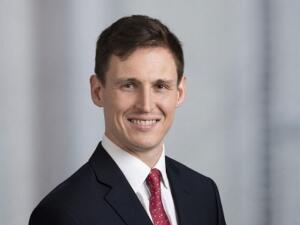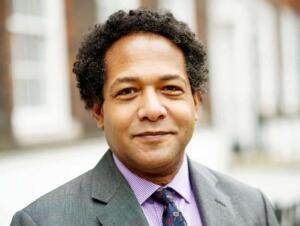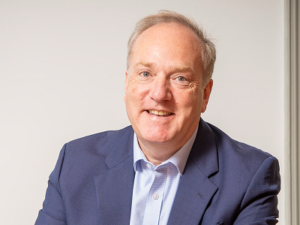UK barristers and the UPC: Avoiding the Irish route
The barristers at 11 South Square are keen on the UPC. However, they want to avoid admission via the Irish route. In the second part of our series on UK barristers at the UPC, JUVE Patent explains why the well-known IP set is deliberately pursuing a different strategy to its competitors and why there may not be a culture clash after all when London barristers claim their place in the UPC courtroom.
21 May 2025 by Mathieu Klos
No barristers from 11 South Square are currently listed as UPC representatives on the set’s website. However, they are definitely keen to run UPC cases, as Brian Nicholson and Edward Cronan confirmed in an interview with JUVE Patent. “The UPC is an important development in global patent litigation and it is important to our clients,” says Nicholson.
Nicholson is one of the set’s best-known King’s Counsel, while Cronan is an up-and-coming junior barrister, listed in JUVE Patent’s Ones to Watch 2024.
- Brian Nicholson
- Edward Cronan
11 South Square does not have any barristers qualified as European patent attorneys either. “We are avoiding the Irish route for the time being and will first take a different path to participate in UPC cases,” Nicholson adds.
The barristers at 11 South Square consider that qualification via the Irish route poses some problems for British barristers that it does not for British solicitors. “We observe that the Irish Bar is trying to avoid being flooded by UK barristers,” says Nicholson. “Even if you pass the exam, it is becoming increasingly difficult to obtain appropriate general insurance in Ireland.”
“The Irish Bar is trying to avoid being flooded by UK barristers”
UK barristers must not only pass the exam to gain admittance to the Irish Bar, they must also have insurance. “At present, you will probably have to take out insurance on a case-by-case basis. That is time-consuming and expensive,” says Nicholson. “We have been advised that we can take a different approach by regulatory lawyers at firms we have worked with.”
Case-by-case secondment
Nicholson and Cronan assume that they will handle most UPC cases together with UK solicitor firms anyway. “We work on large patent cases, which are mostly global disputes. In those cases, instructions tend to come through international law firms. This will also apply to UPC cases, and so it is unlikely that we would ever be instructed as an independent UPC representative,” says Cronan.
When it comes to UPC cases, 11 South Square intends to use the tried-and-tested method of secondments to a law firm. It has long been common practice for junior barristers to be seconded to a solicitor firm for a certain period of time to work on cases and cultivate relationships.
“It is unlikely we would be instructed as an independent UPC representative”
In future, the set would also like to apply this approach to UPC work on a case-by-case basis. King’s Counsel or junior barristers would then be seconded to the Irish office of the solicitor firm and work on the UPC case under the firm’s name.
11 South Square explains how this should work form a legal standpoint: Where a seconded barrister is employed by the registered representative, the representative can delegate responsibility for making an oral statement or asking questions of a witness in the same manner as they could delegate those tasks to an associate working in their team.
The decision as to whether it is appropriate to do so rests with the UPC representative and must be made in accordance with the code of conduct applicable to their practice as Irish lawyers and the UPC’s Code of Conduct.
Much up in the air
But even with this approach, some details remain up in the air, as Brian Nicholson explains: “We accept there is a chance that the UPC will establish that nobody is entitled to speak in a UPC courtroom unless they are themselves a registered representative. However, until this question is answered, 11 South Square’s approach has been to hold off from sending its members to qualify for the Irish Bar.”
But one thing is certain, the name 11 South Square would not appear in the UPC register. Nicholson and his colleagues are willing to accept this for now.
Even though 11 South Square’s approach to UPC cases differs fundamentally from that of its competitors, all London IP sets have one thing in common: the assumption that they will not represent cases alone, but always in conjunction with law or patent attorney firms. Thus all sets are focusing on cooperation rather than competition.
Clash of cultures
Continental European litigators do not fear competition from barristers anyway, claim German lawyers. They believe that, when it comes to successfully navigating UPC proceedings with their continental customs, the refined Oxford English, the habit of adhering to the many formalities in UK proceedings and the elevated status of supposedly elitist barristers in the UK legal community will be more of a hindrance.
“Barristers will probably have to work a little harder”
“There are huge differences between the usual UK High Court trial and UPC proceedings. UK barristers have to avoid the risk of being arrogant and telling the UPC judges and other lawyers that this is the way we do it in the UK,” says Nicholson.
“In terms of the overall structure of the procedure, we will probably have to work a little harder than continental lawyers to adopt the more continental approach of the UPC, but we would also have a significant advantage in cases where the UPC permits cross-examination,” says Nicholson.
No fear
Other barristers are also optimistic and do not fear any disadvantages just because UK High Court or Court of Appeal proceedings are their familiar environment. They point to their experience with proceedings in other courts.
“The UPC cases, with their front-loaded and paper-driven proceedings, would not deter UK IP barristers,” says Mark Chacksfield from 8 New Square. “We are used to this from EPO opposition proceedings and the work we regularly do for example in the UKIPO. An important part of a lot of High Court work is also based on paper skeleton arguments, supplemented by the oral pleadings”
- Mark Chacksfield
- Richard Darby
“Barristers have been working closely with patent attorneys in EPO oppositions and appeals for many years,” says Richard Darby from Three New Square, who is also qualified as a European patent attorney. “In EPO proceedings, we are not necessarily the main person representing the case. Instead, we work on an equal footing with the patent attorneys. We often have clearly defined tasks in the hearings. We can easily transfer this to UPC proceedings.”
“It is common to engage UK barristers for strategy and written and oral advocacy in arbitrations including those with procedures somewhat similar to the UPC,” says Chacksfield. “I imagine our involvement in UPC proceedings would be similar.”
Who is king in the ring
The UPC is a new court with great appeal for lawyers. Everyone – whether young or old, lawyer, barrister or patent attorney – would like to plead before the new court. If they now appear side by side, this could lead to competition over who is the boss in the courtroom.
Barristers are used to having the final say in UK proceedings. This is not a problem for UPC proceedings, according to all the barristers interviewed by JUVE Patent.
8 New Square’s Daniel Alexander, who as King’s Counsel has led many high-profile UK cases, says: “I do not think there is a question of UK barristers seeking to “run the show”. We have always been respectful of firms’ relationships with clients and would have as much or as little involvement as clients want, whether as a main representative or as part of a wider team.”
Like Alexander, many UK barristers want to be involved in the UPC because the court is a real innovation and many cases are “interesting and international”.
“The UPC has many very interesting international cases”
“Barristers are, by profession, a kind of consultant and are used to offering their services to clients or other law firms on a specialist or ad hoc basis,” says Tom Mitcheson, one of the leading King’s Counsel at 3 New Square. “But it would also be nice to be the main representative at oral proceedings in a UPC case.”
Versatility key trait
UK barristers are open to the new conditions at the UPC. They are no stranger to different forums; beneath the traditional black robe and blond wig is always a versatile advocate.
- Daniel Alexander
- Tom Mitcheson
- Richard Davis
Richard Davis of Hogarth Chambers was the first barrister to conduct UPC proceedings. He is also a European patent attorney and represented Stanley Black & Decker at the Nordic Baltic local division in a case against Viking Arm in March 2025.
After his first UPC hearing, a patent expert asked him on LinkedIn what he wore: “Full KC kit? Wig? Patent attorney robes? Or did you go low key?” In the end Davis decided that, since he is a European patent attorney, he should ‘robe’ rather as a patent attorney. He compromised by wearing a suit and his silk gown. But he left his wig at home.







